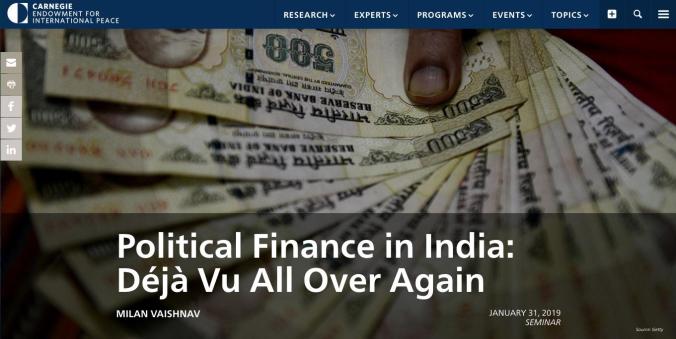
In the January 2019 issue of Seminar, I take a look back at the recent changes made to India’s system of regulating campaign finance in the year 2018. Here’s my bottom-line:
As the global democratic reform movement is agitating for more transparency, disclosure and openness in political funding, India is rapidly hurtling in the opposite direction. India has earned a reputation for often bucking global trends. But here is one domain where India’s innovation is hardly cause for celebration.
This issue is going to get loads more attention as the race for 2019 heats up. You can read the full piece here.
p.s. The entire special issue of Seminar is worth reading. It has smart essays by Yamini Aiyar, Mihir Sharma, and my colleague Srinath Raghavan, among others. You can read them all for free here.


